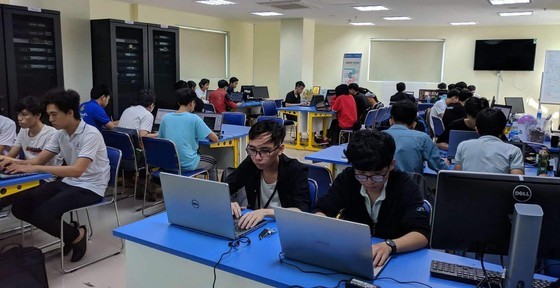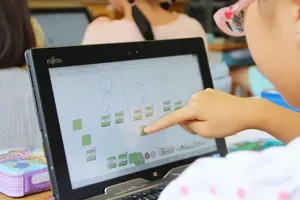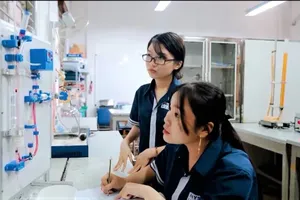 |
Students of a college in HCMC in their class |
According to the announcement of the General Statistics Office, the unemployment rate in the working age group by technical and professional level for university students will be 3.16 percent in 2022 down 0.2 percent compared to 2021 while the rate for college graduates is 3.41 percent down 1.02 percent compared to 2021.
Meanwhile, the average number of high school graduates who want to go to college compared to the number taking the high school graduation exam is 65.9 percent in 2023, and in 2022 was 61.34 percent. So how to reduce the unemployment rate with a university degree holder?
College can be an important step towards achieving success, but it is just the beginning of a new stage. Studying at university is considered a stage of career preparation that provides students with the necessary skills, knowledge and expertise for success in their future job roles. Therefore, while at universities, students must soon adapt to a diverse learning environment including new friends, classrooms, lecture halls, learning goals, learning methods, and teaching methods.
Therefore, students must adapt to a life of self-management of study plans and autonomy in the journey to reach their career dreams. Students must learn about the training program, plans and training goals of each year as well as understand the core points of training regulations, the number of credit accumulation, the maximum time allowed, the final exam, or how to calculate scores for each subject right in the first semester.
Factors such as hard work, dedication, and perseverance can greatly influence your chances of success. Additionally, the job market and economy can also play a role in determining a student's success after college. Besides, students also need to be active in arranging their own study and activity plans to achieve the goal of studying at university.
Self-positioning also helps an individual to envision their goals, understand their strengths and weaknesses at each moment and know how to express themselves to the right people and what they want to be in the future. The labor market changes and each person's thinking also changes, positioning yourself needs to be done generally for the university stage and specifically for each school year.
Students need to have a clear and realistic understanding of the social-economic development so that they can know what knowledge and skills they are lacking in order to promptly add them to their improvement plans immediately. Good positioning will help students adjust and plan their studies and training as closely as possible to the career market. Without updates on the news of the career market but just paying attention to academic curriculum and performance, students will not understand real society growth.
According to the statistical list of training majors of higher education, there are nearly 400 majors, belonging to 95 industry groups and 23 fields. Currently, industries within the same industry group have great interference in careers and employment. In fact, out of nearly 3,000 respondents in a recent survey, nearly 20 percent of students said that they do not know what other majors are the same as their major while 30 percent have not determined what job they want to work in.
With nearly 400 majors at the university level and about 800 occupations, many of which require both graduation in the right major and a related professional certificate. Ms. Le Thi Thanh Mai, former head of the Vietnam National University Ho Chi Minh City (VNUHCM)’s Student Affairs Committee advised students to start their career preparation while they are still a student at university (at least third year ) that can help them to build a comprehensive portfolio demonstrating their readiness and suitability to enter their profession. In addition, currently, the 4.0 economy requires high skills, so students need to practice working skills and self-management skills.
























